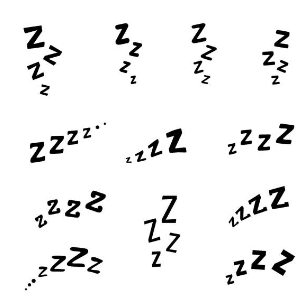

Sleep requirements change as we age. From a recommended 14-17 hours for a newborn through to seven or more hours per night for an adult (18-60), our sleep requirements also have an impact on promoting good health and well-being.1
The influence of sleep on chronic conditions and general well-being has been the subject of increased interest from the scientific community. Research has found relationships between poor/short sleeping patterns and increased risk of obesity 2 , an increased risk of type 2 diabetes 3 as well as an association between disordered sleeping patterns and depression 4.
So why is sleep important? To answer this, we need to understand what is happening within our bodies when we sleep.
Our body is a busy vessel – constantly working in the background in thousands of ways to ensure we are functioning. Sleep gives our body (and brain) the time and space it needs to slow down and recover. The processes engaged during the sleep cycles all aid in this recovery phase to help promote better long-term physical and mental health. Sleep aids in ensuring the brain’s ability to adapt to new input or stimuli.5
Stages of sleep.
We have two different categories of sleep - REM sleep (rapid eye movement), and non-REM sleep. Throughout the night, our body does cycles of both REM and non-REM - each of which has its own stages within.
Our first three stages of sleep are non-REM mediated. This accounts for early sleeping (getting to sleep) and waking up in the early stages. It also comprises ‘deep sleep’ - where the body is in recovery mode and the brain activity slows down.
REM sleep then completes the fourth stage, which results in an increase in brain activity levels (similar to being awake), as well as an increase in heart rate and breathing rate. Our most intense dreams are associated with this stage. 6
So, if reading this has not put you to sleep already, here are some tips to improve your sleep hygiene (sleep routine) and set yourself up for a good night of quality sleep.
If you are struggling with your sleep – whether you can not get off to sleep, or you are waking frequently through the night – there are supports available – keep a sleep journal and talk to your health professional for further support.
Wishing you all a great sleep!!
Article provided by Coeliac New Zealand Dietary Education Manager Suzanne Aitken